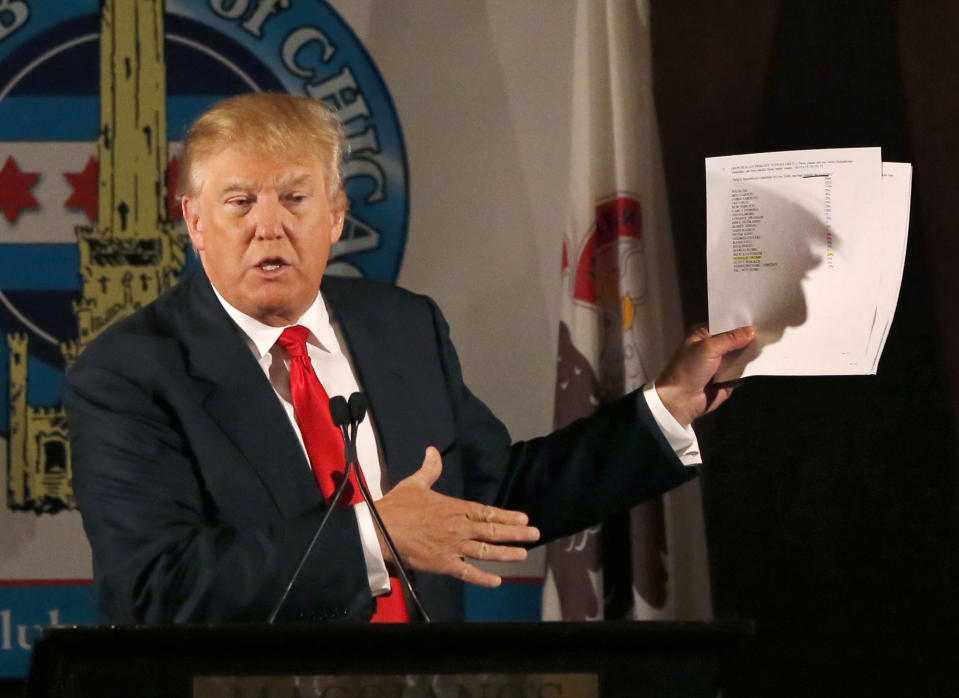The market is enamored by the wrong bullish Trump policy

Ever since the election of Donald Trump, stock markets have been trending higher. Analysts credited the rally to Donald Trump’s policy promises. Recent surveys of American consumers and businesses confirm this sentiment.
Specifically, analysts — including those from Barclays, Deutsche Bank and Goldman Sachs — are bullish on Trump’s calls for cutting corporate tax rates.
“We estimate that President-elect Trump’s corporate tax plan could boost S&P 500 earnings by $180bn,” Barclays’ Jonathan Glionna said.
However, one veteran stock market guru isn’t convinced tax cuts is the big bullish story.
“With respect to corporate tax cuts (the topic the market seems most enamored with), we believe investors might be a little too presumptive,” BMO Capital’s Brian Belski said in a recent note to clients. “For instance, increased talk of border adjustments and new potential trade deals and/or barriers could generate volatility and doubt surrounding the benefits of corporate tax cuts, in our view. Furthermore, the timing of such cuts remains in question considering the lack of a federal budget, not to mention a debt ceiling looming in March 2017.”
Rather, Belski sees an economic tailwind coming from another set of Trump promises.
Why deregulation is much more important
“Instead, we believe a period of declining regulation is much more important, with deeper structural positives across the business spectrum,” Belski said.
In a conversation with Yahoo Finance, Belski noted that it’s not so much the restrictiveness of regulation. Rather, it’s the onerous nature of complying with regulation that has hindered our ability to conduct business or even start a business.
“Admittedly we in the financial services industry have endured a 15-year period – especially since 2008 – of increased doubt, decreased credibility, and accelerating rules and regulation,” he said in his note. “Yes, some were needed. However, history has shown that as Financials go, so goes the economy and markets. Given the fact the US has exhibited the slowest recovery in modern history, we believe it is plain common sense that excess financial regulation was a significant factor in stifling the rebound.”
And that’s just financial services regulation.
“The same can probably be said by similar restrictive behavior by the FDA, FCC, and EPA for that matter,” he added. “As such, decreased regulations should inherently decrease costs and correspondingly expand margins, revenue, and earnings – all of which might finally accelerate growth to more ‘normal’ levels.”
If it’s easier to do something, like conduct business, then people will probably do more of it. Of course, there are risks.
“This could lead to another wave of destructive crony capitalism, the kind that contributed to the financial crisis of 2008,” veteran strategist Ed Yardeni said (via Schwab). “Or else combining the talents of America’s smartest dealmakers, savviest business executives, and high-powered technology leaders could boost growth in America, especially if lower corporate and personal income tax rates revive animal spirits…”
As Schwab’s Liz Ann Sonders says, “I am hoping for the latter.”
–
Sam Ro is managing editor at Yahoo Finance.
Read more:
